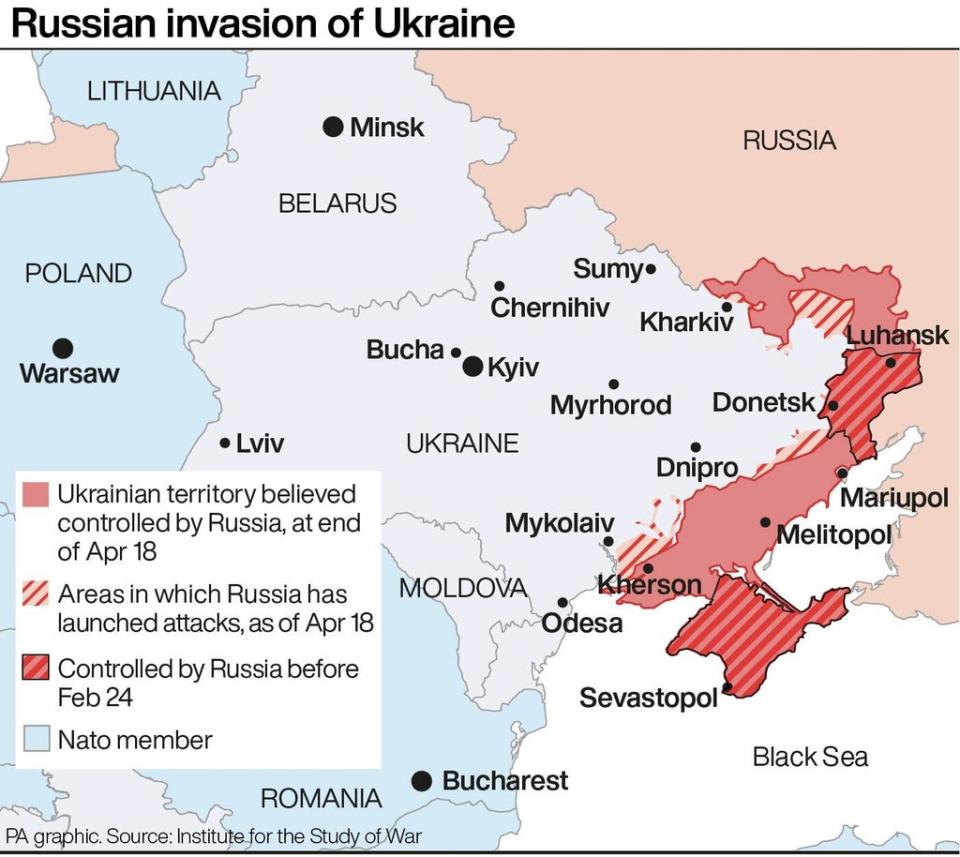Nearly 3,000 of Russia’s notorious Wagner mercenary group have been killed in the war, UK MPs told
- Oops!Something went wrong.Please try again later.
Close to 3,000 members of the private military company Wagner Group are believed to have been killed on the battlefield in Ukraine while fighting for Russia, British MPs have been told.
The statistics were shared with the Commons Foreign Affairs Committee by investigative website Bellingcat’s top official Christo Grozev who confirmed the toll.
Citing sources from within the Wagner circle, Mr Grozev said that his investigation website was informed that the numbers fighting alongside the Russian troops were “much higher” than expected, according to a report.
MPs were told that close to 8,000 Wagner mercenaries had been deployed in Ukraine.
Wagner group is among the top three mercenary groups armed and fighting in the Russian invasion of its former Soviet territory.
Some 200 mercenaries had been sent to the Ukrainian capital Kyiv, it was reported, to “scout out and assassinate” key political figures, the report added.
A “large number” from the group were deployed with military convoys which approached Kyiv from Belarus. The report added that the mercenaries were also present in Bucha, where mass-killings of civilians were reported last month.

UK defence secretary Ben Wallace has called out Russian attempts to hire mercenaries as a sign of “desperation”.
“We’ve seen significant amounts of effort to try and bring Wagner Group into Ukraine. Wagner Group being the wholly unacceptable mercenary company responsible for all sorts of atrocities in Africa and the Middle East,” Mr Wallace said.
Wagner have reportedly entered the battlefields in other conflicts, including alongside Bashar al-Assad’s forces in the Syrian civil war.
Wagner was established by Dmitry Utkin, a former Russian soldier who reportedly has Nazi tattoos on his chest.
The Independent has a proud history of campaigning for the rights of the most vulnerable, and we first ran our Refugees Welcome campaign during the war in Syria in 2015. Now, as we renew our campaign and launch this petition in the wake of the unfolding Ukrainian crisis, we are calling on the government to go further and faster to ensure help is delivered.
To find out more about our Refugees Welcome campaign, click here. To sign the petition click here. If you would like to donate then please click here for our GoFundMe page

